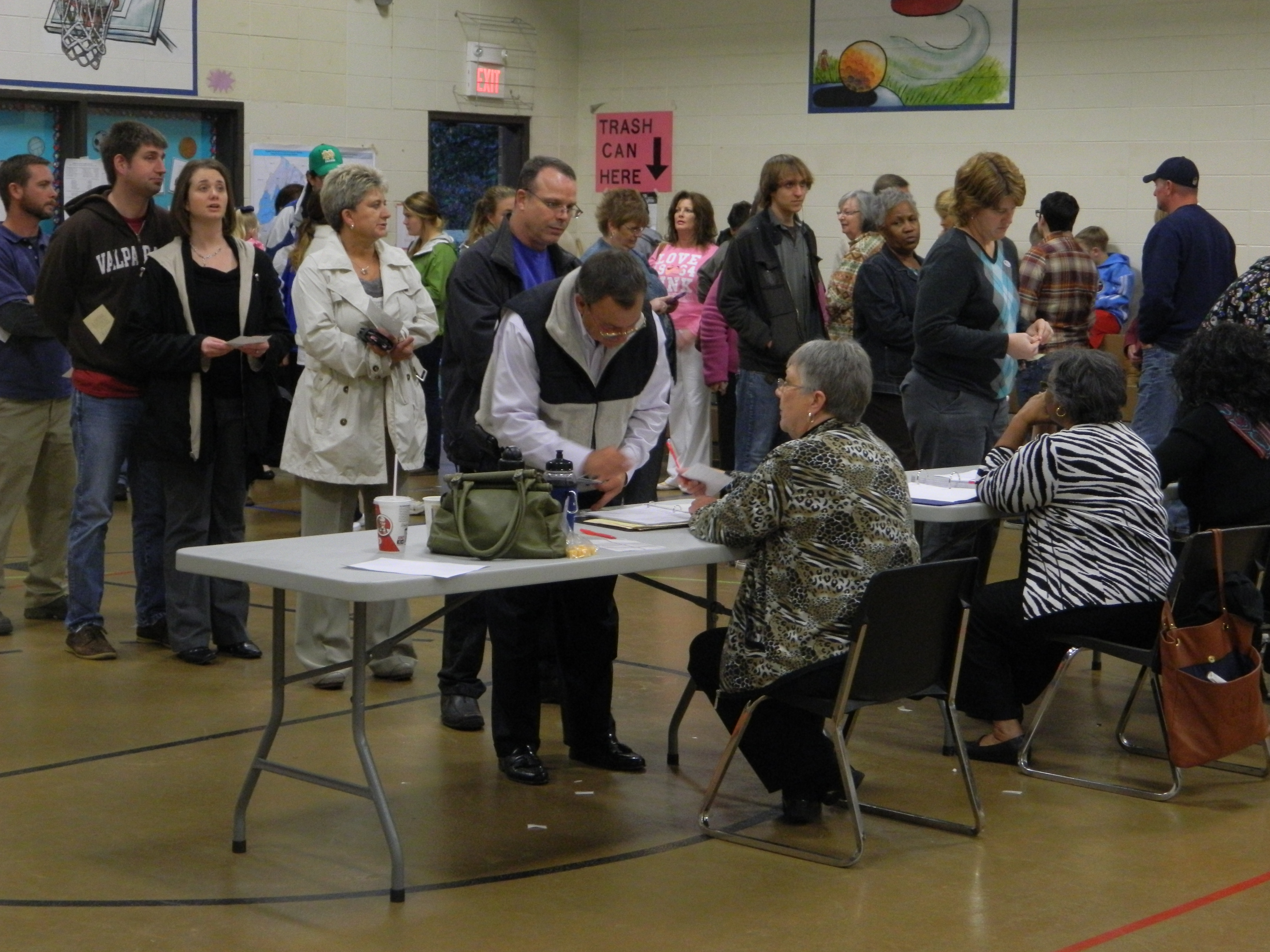Few voter ID woes reported; critics unconvinced
Friday, January 1, 1904
VOTING PROBLEMS?
The Tennessee Coalition for Action is collecting incidents of people who had problems voting on Nov. 6. To submit, visit tnca.org/problems-voting.
Only a fraction of voters complained they were restricted from casting ballots on Election Day because of Tennessee's controversial and highly publicized voter photo ID law, but opponents of the law insist that even "low" numbers are unacceptable.
"You can't say it's 'not that many' when you're talking about someone's right to vote," said Nashville attorney Doug Johnston, whose firm is challenging the law in Tennessee's Supreme Court.
"The Constitution lays out the qualifications, and they were perfectly qualified to vote," Johnston said. "I don't understand the argument that it's not very many, when [the state] can't give any real statistics on voter fraud which supposedly set all this law in action."
The Tennessee Legislature passed the law in 2011 requiring a photo ID to vote. Opponents argue that the law was politically motivated to discourage groups that tend to support Democrats -- such as the elderly, minorities and students -- from voting.
Voters without a photo ID cast provisional ballots, which are counted if the voter brings proper ID to the election commission within two business days after the election.
State Election Coordinator Mark Goins said official numbers on provisional ballots won't be available until this week, but he said problems with photo IDs appeared to be minimal.
"With everything you would read in the newspaper, everyone thought [voter ID] was the issue," Goins said Friday. "We received hundreds of calls on our voter hotline on [Election Day]. ... I think we received a total of two photo ID questions."
Thirteen Hamilton County voters had to cast provisional ballots because they lacked photo ID, according to the county election commission. Two voters, determined to have their votes count, returned with their IDs after the races already had been called.
"Considering we voted 140,000 people, it's probably about what I expected," said Scott Allen, assistant administrator of elections for the Hamilton County Election Commission. "We haven't had much of an issue since it went into effect. I think it was just about having good communication about it."
Eleven invalid votes may seem like a small fraction of 142,000 cast, but it's still too many for Hamilton County Democratic Party Chairman Paul Smith.
"Those people wanted to take part, and they should have been able to," Smith said.
Other anti-voter ID activist groups argue it's impossible to measure how the law may have discouraged potential voters.
"We won't ever know fully the number of people who stayed home because they didn't have the photo ID," said Mary Mancini, executive director of Tennessee Citizen Action, which is compiling incidents of voting problems across the state.
Election officials said they credit voters' preparedness to statewide publicity about the law.
"The Legislature gave election officials plenty of time to hold community meetings and get information out in the media," Goins said.
Where to vote
Local officials' biggest problem turned out to be voters' confusion over where they were supposed to vote. Redistricting last year by the Legislature, based on numbers from the 2010 U.S. census, meant that many voters were assigned new polling places.
"From what I understand, there were a lot of people who were confused about where to go," said Allen. "I feel like we did all we could do, mailing people new registration cards in July, but some people still all had their old [voting] cards when they showed up to the polls."
Election officials blame the mix-ups on the fact that state redistricting came during the same year as a presidential election.
"That's basically a recipe for confusion for the voters who come out only for presidential elections," Allen said.
Smith argued that redistricting changes and the ID laws were just two factors in an "orchestrated effort" to reduce the vote in communities that traditionally vote Democratic.
"The whole debate is they were trying to slow the voting down in certain segments of society. And what we've seen is they were successful in doing that," said Smith, citing lower county voter turnout than in the 2008 presidential election.
Currently, 33 U.S. states have voter ID laws, and 17 of those mandate photo IDs, according to the National Conference of State Legislatures.
Tennessee and Georgia are two of four states with "strict" photo ID laws -- meaning that voters without it may vote only by provisional ballot and must show their photo ID later to be counted.
Georgia's law was upheld by the state Supreme Court in 2011. In Tennessee, the Court of Appeals upheld the law just days before the election.
But laws continue to be challenged across the nation, including several high-profile cases in the months leading up to the election. Texas' photo ID law was struck down, Pennsylvania's was halted temporarily, and South Carolina's was approved -- though it could not be implemented until 2013.
Johnston's case will be heard by the Tennessee Supreme Court early next year. He and partner attorney George Barrett are representing Memphis and two voters there who were unable to vote in August despite presenting library cards. The Court of Appeals ruling upholding the law also said library cards were valid forms of ID in Shelby County.
All vote totals, including provisional ballots, are unofficial until certified by the Tennessee Division of Elections.
Contact staff writer Kate Harrison at kharrison@timesfreepress.com or 423-757-6673.

